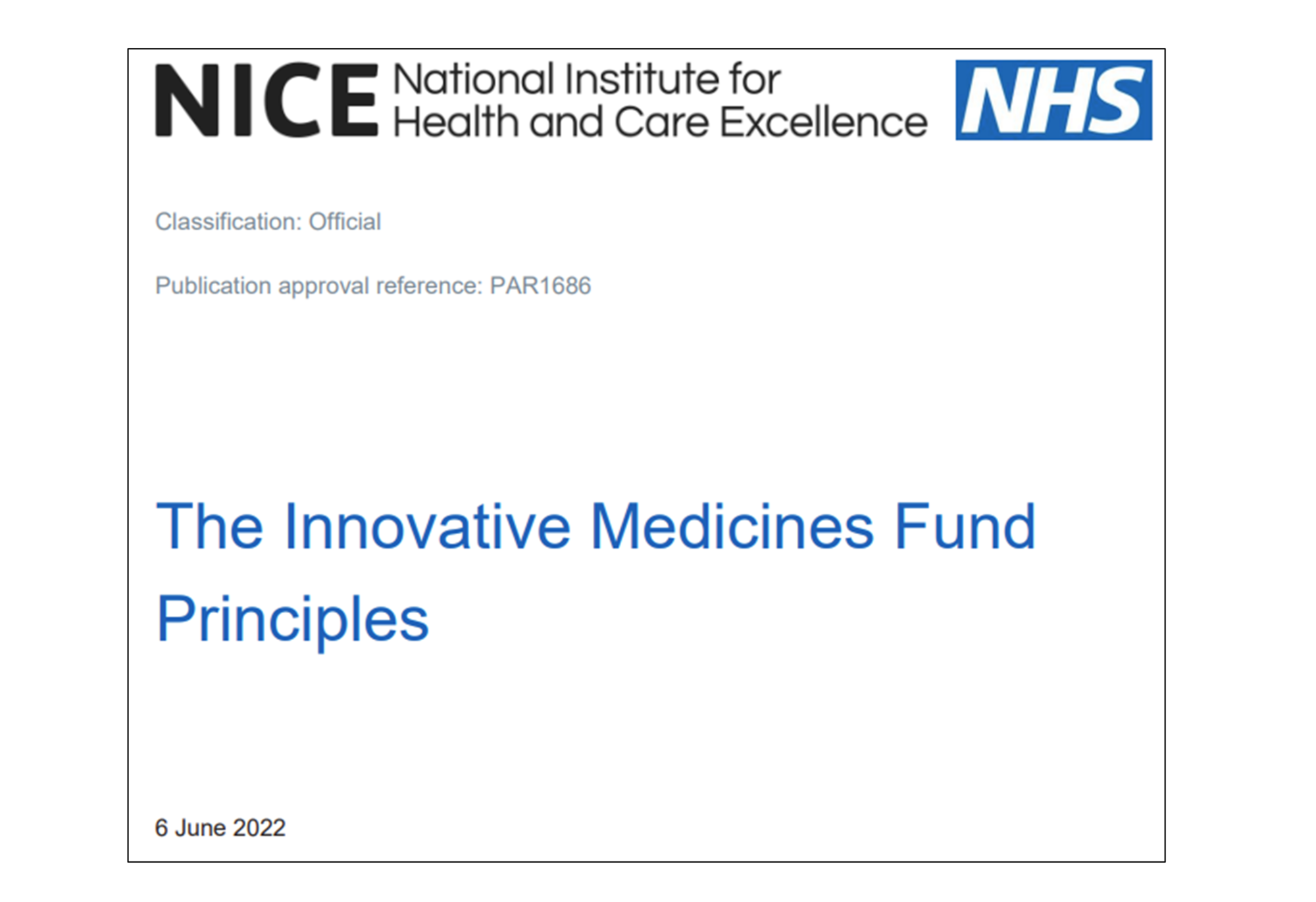Written by Pip White, Principal Medical Writer
The IMF
The Innovative Medicines Fund (IMF) launched this month (June 2022) to support faster access to non-cancer drugs. This process involves National Health Service (NHS) England and the National Institute for Health and Care Excellence (NICE) working in partnership with pharmaceutical companies to respond to the long-standing challenge of evaluating medicines and addressing the uncertainty around their effectiveness.
The IMF complements the existing Cancer Drugs Fund (CDF), which has provided funding for promising cancer medicines via managed access agreements since 2016. The IMF provides a further £340 million of NHS funding annually to expand fast access to innovative non-cancer medicines, including rare conditions.
This ringfenced money is a ‘managed access fund’, which means that all eligible patients have immediate time-limited access whilst further evidence is collected to address clinical uncertainty. To be eligible for this interim funding, the technology must have the potential to be cost effective and for new evidence to be collected within a reasonable timeframe (≤5 years). For any medicine NICE recommends with managed access, a managed access agreement (MAA) is put in place between NHS England and the company; this comprises:
- A time-limited data collection agreement (DCA)
- A patient access scheme (PAS) and/or a commercial access agreement (CAA).
Entry into the IMF
For companies interested in managed access via the IMF, health technology assessment (HTA) evaluations follow the standard process described in the NICE health technology evaluations manual (2022). Companies must engage early with NICE and demonstrate that their technology has the potential to address a high unmet need, provide significant clinical benefits, represent a step-change in medicine for patients and clinicians, and demonstrate that the new evidence to be generated could sufficiently reduce uncertainty.
Resolving uncertainty through the IMF
For medicines that enter the IMF, data collection requirements will depend on the uncertainties identified and NICE ensures that each DCA takes account of the considerations from multiple stakeholder perspectives (e.g. clinicians, patient groups, academics). During the data collection period, companies are responsible for:
- Paying the costs of data collection, validation, and analysis
- Commissioning the development of a data/statistical analysis plan
- Engaging fully with the NICE guidance update at the end of the data collection period
- Covering the continuing treatment costs for any patients benefitting from the medicine who were prescribed the medicine when it was in the IMF if NICE finds that the case has not been made to recommend routine use in the NHS at the point of NICE guidance update.
Resubmitting evidence and exiting the IMF
All medicines recommended with managed access in the IMF will be subject to a NICE guidance update at the end of the data collection period. The NICE guidance update will look at all the available evidence afresh: it will not necessarily follow the scope of the original evaluation. The company must therefore provide a further evidence submission that takes account of changes in relevant comparators, clinical pathways, new evidence and commercial options following the period of managed access. Following consideration of evidence submitted during the original evaluation, new evidence from the data collection period, and a new price proposal from the company, NICE will make a final recommendation for routine use in the NHS or not.
If you would like to learn more about HTA submissions (including systematic reviews, health economic modelling, and medical writing), please contact us at Source Health Economics, an independent consultancy specialising in evidence generation, health economics, and communication.




